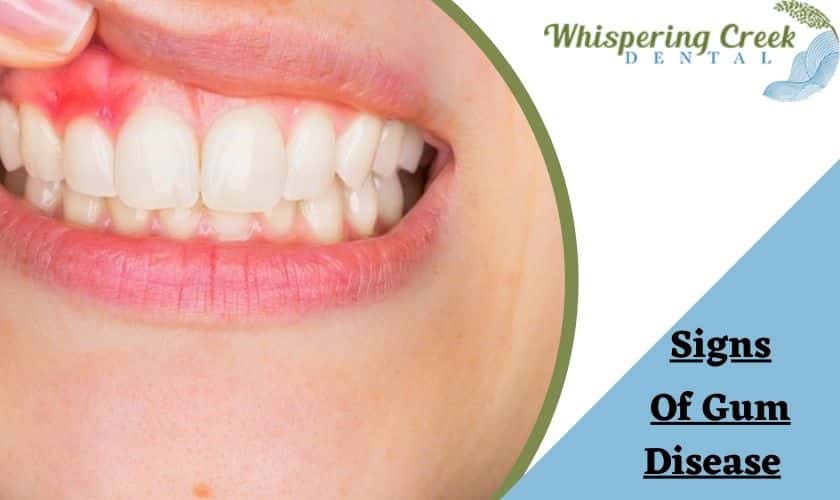4801 Southern Hills Dr, Sioux City, IA 51106, USA

Gum disease is severe but is treatable. Gum disease can worsen and affect your oral health badly if left untreated. It’s crucial to know the early signs of gum disease, which can be treated, or it will lead to tooth loss or extraction. Don’t ruin your oral health because of gum disease; get treated immediately. Visit the website and learn more.
What Causes Gum Disease?
- In most cases, gum disease starts with plaque accumulation. If they are not cleaned properly, it gets stuck and later results in periodontitis.
- Once plaque accumulates for a longer time, it hardens and forms tartar. Dentists state that tartar is even more challenging to remove as it’s filled with bacteria. The more tartar and plaque accumulate, the more damage it causes to your teeth.
Early stages of gum disease
- The first stage of gum disease is referred to as inflammation. Also known as gingivitis, inflammation occurs when you experience gum bleeding while brushing or flossing your teeth.
- The Second stage of gum disease is early periodontal disease. In this stage, you might experience gum recession, forming small pockets between your gums and teeth, leading to bad breath. These pockets harbor harmful bacteria.
- The third stage is moderate periodontal disease, where you will experience heavy gum bleeding and constant pain around your teeth. The infection can eventually lead to an inflammatory response throughout your body. As a result, your teeth will lose bone support and become loose.
How Do You Detect Gum Disease?
Swollen Gums
The first sign if you have gum disease is swollen gums. It causes irritation, redness, and swelling of the gingiva, situated around the base of your teeth.
Bleeding Gums
When plaque buildup occurs inside your gums, it causes gum bleeding, leading to gingivitis. Once gingivitis gets advanced, it results in periodontitis.
Persistent Bad Breath
One of the significant oral habits we all have is brushing and flossing. But if we don’t brush properly, plaque irritates gums and forms plaque-filled pockets between teeth and gums. Your tongue often traps the bacteria that produce odors, leading to bad breath.
Gum Recession
Gum recession occurs when your gum tissue is pulled away from your teeth. In this condition, your teeth roots are exposed, often because of aggressive brushing or smoking.
Sensitive Teeth
Teeth sensitivity occurs because of varied reasons, one of which is gum disease. It’s a result of worn tooth enamel or exposed tooth roots. Sensitivity also occurs because of plaque accumulation that irritates the gum tissues badly.
Treatment Options For Gum Disease
Professional Dental Cleaning
One of the best ways to treat gum disease is professional dental cleaning. It includes a comprehensive dental examination, after which your dentist will remove the plaque and tartar from above and below the gum line. Professional dental cleaning should be done twice a year to ensure proper oral health.
Scaling And Root Planing
Scaling and root planing is one of the most popular forms of gum disease treatment. It’s a non-surgical procedure that involves deep cleaning and is done under a local anesthetic. Tartar and plaque from the gum line are treated through scaling and made smooth with planning.
The Bottom Line
Gum disease is widespread and can happen to anyone. The problem starts when we tend to ignore gum disease signs, and it worsens. As it’s said, prevention is better than cure- it applies to everything. Untreated gum disease increases your risk of tooth loss; sometimes, even root canal treatment cannot save your teeth. You must visit your dentist once you see the early signs of gum disease to prevent further complications in your oral health.




